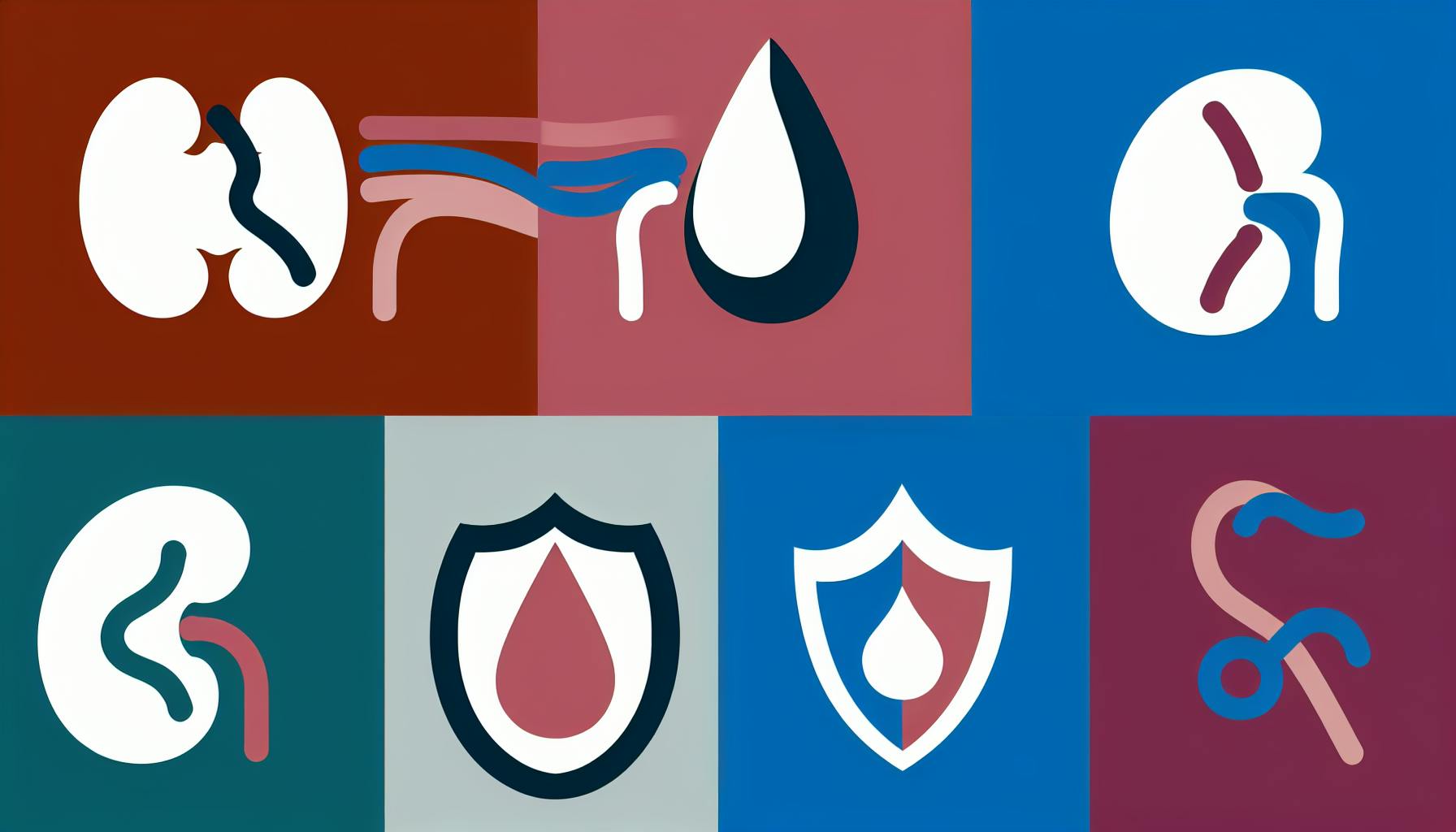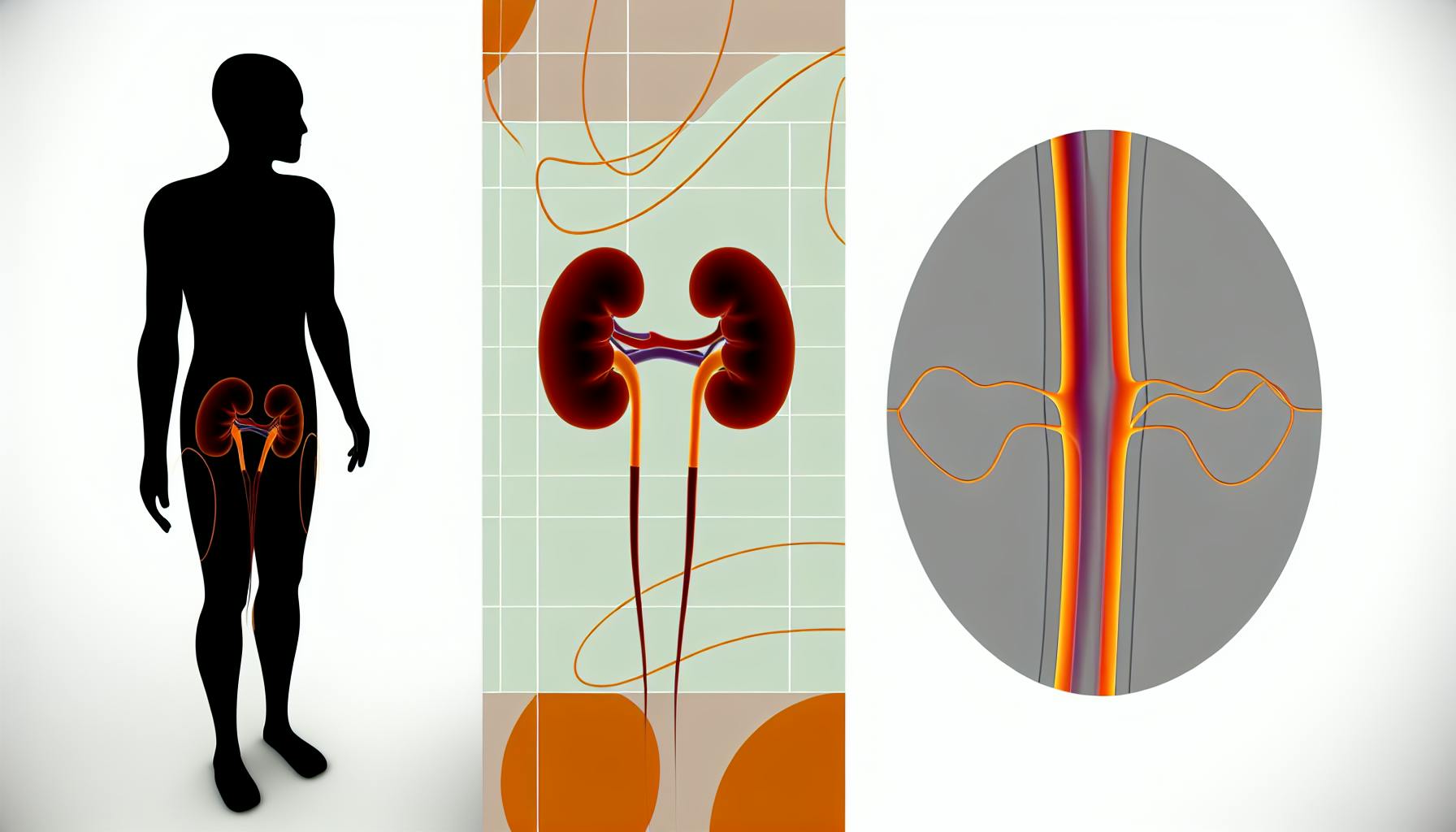Finding the right doctor to treat kidney and bladder conditions can be challenging. When searching for a kidney bladder doctor in Boston, patients want reassurance that the physician has the proper expertise and credentials.
This article will guide readers through the key considerations for identifying an experienced, qualified urologist or nephrologist to treat recurrent UTIs, kidney stones, incontinence and other urological problems.
We’ll review the roles of urologists versus nephrologists, look at certifications, surgical skills, hospital affiliations and other factors that provide insight on a doctor's capabilities. Tips on evaluating patient feedback and customizing questions based on your needs will also help find the perfect match.
Finding the Right Kidney or Bladder Doctor in Boston
Understanding your specific urological health needs is an important first step in finding the right specialist. Those experiencing issues like kidney stones, recurring UTIs, pelvic floor dysfunction, enlarged prostate, prostate cancer, testicular cancer or erectile dysfunction can benefit from seeing a urologist.
Identifying Your Urological Needs
- Men often seek urological care for conditions like enlarged prostate (BPH), prostate cancer, erectile dysfunction, and testicular disorders. A urologist can help diagnose and develop treatment plans for these male-specific issues.
- Women may require a urologist for recurring UTIs, incontinence, pelvic floor dysfunction, kidney infections, and some urinary tract cancers. An experienced urologist can provide specialized care tailored to female patients.
- Both men and women can develop kidney stones, bladder cancer, kidney cancer, and upper tract urothelial carcinoma. A skilled urologist can accurately diagnose and treat this wide range of urinary system conditions.
The Role of Urologists and Nephrologists
While urologists and nephrologists both treat kidney and bladder conditions, their specializations differ:
- Urologists focus on surgical treatment of disorders of the urinary tract and male reproductive system. They are experts in minimally invasive surgeries like laparoscopy and robot-assisted procedures.
- Nephrologists diagnose and medically manage kidney disease, kidney failure, hypertension, electrolyte imbalances, and related disorders. They do not perform surgery.
For surgical interventions like kidney stone removal or prostatectomy, a board-certified urologist with extensive robotic surgery experience is recommended. For medical kidney disease management, a nephrologist may be the right specialist.
Should I see a urologist or nephrologist?
When deciding whether to see a urologist or nephrologist, it helps to understand the difference in their specialties:
Urologists
-
Specialize in surgical and medical diseases of the urinary tract system and male reproductive system
-
Treat conditions like:
-
Kidney stones
-
Urinary tract infections
-
Enlarged prostate
-
Erectile dysfunction
-
Testicular cancer
-
Bladder cancer
Nephrologists
-
Specialize in medical diseases and disorders related to the kidneys
-
Treat conditions like:
-
Chronic kidney disease
-
Kidney failure/dialysis
-
Diabetes affecting the kidneys
-
Hypertension affecting the kidneys
Overlapping Conditions
Some conditions can be treated by either a urologist or nephrologist:
- Kidney infections
- Kidney cysts
- Kidney tumors
- Kidney stone complications
- Urinary tract obstruction
So in summary, you would typically see a urologist for surgical conditions or cancers of the urinary tract and reproductive organs. And you would see a nephrologist for medical management of kidney disorders. But there can be overlap with kidney-related illnesses.
When in doubt, your primary care doctor can refer you to the right specialist. Describe your symptoms in detail so they can match you with the best doctor to treat your specific condition.
What type of doctor treats bladder issues?
A urologist is a medical doctor who specializes in treating diseases and conditions of the urinary tract and male reproductive organs. This includes the:
- Kidneys
- Ureters
- Bladder
- Urethra
- Prostate
- Testicles
Some of the common conditions that urologists treat include:
- Kidney stones
- Urinary tract infections
- Bladder control problems like incontinence
- Enlarged prostate
- Prostate and testicular cancers
- Erectile dysfunction
Urologists have extensive training and expertise in both surgical and medical treatment options. They can perform minimally invasive surgeries using lasers, telescopes, and robots.
When trying to decide between a urologist or a nephrologist for a kidney or bladder issue, there are a few key differences:
- Urologists specialize in the urinary tract overall and also treat conditions of the male reproductive system.
- Nephrologists specialize specifically in medical conditions involving the kidneys.
So for kidney stones or infections, you could see either type of specialist. But for bladder control problems, enlarged prostate, or testicular issues, you would want to see a urologist.
Overall, a highly experienced urologist like Dr. David Canes would be an excellent choice for treating any bladder problems or urinary tract conditions in the Boston area. With specialty training and over 18 years performing robotic surgeries, patients can feel confident in receiving state-of-the-art care.
What doctor do you see for diseases of the kidney bladder or urinary system?
A urologist is the doctor who specializes in treating diseases and disorders of the urinary tract system and genitals in both men and women. This includes common issues like:
- Kidney stones
- Urinary tract infections
- Incontinence
- Enlarged prostate
- Prostate cancer
- Bladder cancer
- Testicular cancer
- Erectile dysfunction
Some key reasons to see a urologist include:
- You have symptoms like blood in urine, painful urination, inability to urinate, frequent nighttime urination, etc. A urologist can run tests to determine the underlying cause.
- You have been diagnosed with a condition affecting the kidneys, bladder, prostate or reproductive organs. A specialist urologist has the most expertise in treating these sensitive conditions.
- You need surgery on your urinary tract system or genitals. Urologists perform various minimally invasive surgeries such as robotic surgery to treat urologic conditions.
When seeing a urologist, you can expect a physical exam, review of symptoms, urine tests, imaging scans like ultrasounds or CT scans, and discussion of treatment options including medications or surgery.
Based in the Boston area, Dr. David Canes is a highly experienced urologic surgeon and Professor of Urology at Tufts University. With over 18 years specializing in robotic surgery, Dr. Canes provides personalized care and surgical excellence for both cancerous and benign urologic conditions.
Can a urologist look at your kidneys?
A urologist is a medical doctor who specializes in diagnosing and treating conditions related to the urinary tract system in both men and women. This includes the kidneys, ureters, bladder, and urethra.
While urologists focus on the entire urinary system, they have specialized expertise in treating specific kidney conditions including:
- Kidney stones
- Kidney infections
- Kidney cysts
- Some kidney cancers
Urologists can evaluate patients with blood in the urine, recurrent UTIs, or flank pain that may indicate an issue with the kidneys. They utilize urine tests, imaging scans, and other diagnostic tools to examine the kidneys.
If kidney surgery is needed, urologists can perform minimally invasive laparoscopic procedures to remove kidney stones or cancerous tissue. They can also place stents in narrowed ureters causing obstruction.
However, for advanced kidney disease or failure, patients may need to see a nephrologist who specializes in medical management of kidney function. Urologists and nephrologists work closely together.
So in summary, yes a urologist can assess, diagnose, and treat specific conditions related to the kidneys as part of their overall expertise in urinary tract health. They play a key role in detecting and managing kidney problems alongside other specialists like nephrologists.
sbb-itb-89ec482
Evaluating Doctor Credentials and Specializations
Choosing a qualified kidney bladder doctor requires carefully evaluating credentials. The right urologist will have strong academic qualifications from reputable institutions, board certification, and subspecialty fellowship training related to your condition.
Board Certification and Subspecialties
It's essential to verify any potential doctor is board certified in urology by the American Board of Urology (ABU). This rigorous certification process indicates they have the proper training and expertise in areas like kidney cancer, bladder issues, kidney stones, erectile dysfunction, and more.
Look for subspecialty fellowship training that aligns with your specific urological concerns:
- Kidney cancer (urologic oncology)
- Bladder cancer (urologic oncology)
- Kidney stones (endourology)
- Enlarged prostate (urologic surgery)
- Pelvic floor disorders (female urology)
Choosing a urologist with a narrow subspecialty ensures you get an expert in treating your particular condition.
Hospital Affiliations and Urologist Specialist Recognition
Highly qualified urologists are often faculty members at major academic hospitals like Boston Children's, Brigham and Women's, Lahey Hospital or Beth Israel. These hospital affiliations indicate their distinguished expertise is valued for training future doctors.
Additionally, many quality urologists hold honors like "Top Doctor" awards or recognition as "Best Urologists" from reputable organizations. These specialist designations can help confirm their exceptional patient care and surgical skills. Checking for hospital appointments and specialist recognition is wise.
In summary, evaluating credentials helps find the most competent urologist for issues like kidney cancer, recurrent UTIs, enlarged prostates, or other urological concerns. Carefully confirming board certification, relevant subspecialties, hospital affiliations and specialist recognition ensures you choose a distinguished doctor you can trust.
Assessing Surgical Skills for Urological Procedures
When considering surgery for a urological condition, it is important to understand your urologist's skills and experience with different operative techniques. This can give you confidence that you will receive the highest quality care.
Experience with Laparoscopic Surgery and Other Techniques
Laparoscopic and robotic surgeries are less invasive than open surgery and can enable faster recovery times. When meeting with a potential surgeon, be sure to ask:
- How many surgeries have you performed for my specific condition?
- What is your experience with laparoscopic and robotic techniques?
- What percentage of your urologic cases utilize minimally invasive approaches?
An experienced laparoscopic surgeon will have performed hundreds of surgeries. They should readily provide data on personal outcomes and volumes for the proposed procedure.
Higher case volumes are generally correlated with greater technical proficiency. However, surgical skill encompasses more than just operative volumes. Well-trained surgeons exhibit sound judgment, efficient technique, and low complication rates regardless of yearly case volumes.
Outcomes Data and Patient Feedback
The best indicator of a surgeon's capabilities is their actual surgical outcomes. Reputable doctors openly share success rates, complications data, and before/after imaging to demonstrate results.
Additionally, patient testimonials offer qualitative insights into the care experience. Skilled surgeons receive overwhelmingly positive feedback regarding:
- Bedside manner and communication
- Attentiveness and availability
- Customized treatment plans
- Smooth recoveries and minimal pain
Thoughtfully assessing surgical outcomes data and patient reviews builds further confidence in your doctor's abilities. An experienced, talented urologic surgeon will provide transparency into their track record of success across various techniques.
Choosing a Urologist for Personalized Care
The right urologist will take time to understand your health history, goals and preferences when designing a customized kidney bladder doctor treatment plan. This personalized approach is essential for conditions like recurring UTIs, incontinence, kidney stones, and prostate issues.
Assessing the Approach to Recurring UTIs and Incontinence
When meeting with a potential urologist, discuss how they evaluate and treat chronic UTIs or incontinence. Key things to ask about include:
- Diagnostic process: Do they perform urine tests, imaging scans, and other exams to fully understand the root cause?
- Treatment options: Do they offer multiple solutions like medications and surgery instead of a one-size-fits-all approach?
- Preventative care: Do they provide guidance on lifestyle changes to reduce future UTIs or leakage?
A urologist should thoroughly investigate recurrent issues while empowering you to find the right remedy for your body and preferences.
Collaborative Treatment Planning
An effective doctor-patient relationship requires open communication and shared decision making when creating a treatment plan. Here are signs of a collaborative urologist:
- Explains conditions and procedures in everyday terms
- Answers all questions and concerns with patience
- Discusses pros and cons of different treatment options
- Incorporates your goals, needs and values into the care plan
This level of understanding and teamwork leads to better compliance and outcomes. Be wary of any urologist who dictates a rigid protocol without considering your individual circumstances. The right match will educate and support you in choosing the optimal treatments.
Navigating Patient Reviews for Urologist Near Me
Online ratings and testimonials provide transparency into others’ experiences with a given urologist. Look for consistently positive feedback.
Analyzing Feedback on Kidney and Bladder Treatments
When searching for a urologist to treat kidney or bladder conditions like kidney stones, infections, or incontinence, patient reviews highlighting successful outcomes can offer reassurance. Key details to look for include:
- Treatment success rates - What percentage of patients report being symptom-free or complication-free after treatment? Higher success rates signal expertise.
- Bedside manner - Do patients describe the urologist as caring, patient, and good at explaining conditions and treatment options? This suggests effective communication.
- Wait times - How long do patients typically wait to get an appointment? Shorter waits imply adequate availability.
Positive feedback for the above factors indicates patients have had positive experiences, both medically and interpersonally.
Patient Experiences with Prostate and Pelvic Floor Problems
For patients seeking help with prostate issues, erectile dysfunction, pelvic pain, or urinary incontinence, patient testimonials can provide first-hand accounts of how well a urologist addresses sensitive, gender-specific concerns. Details to note include:
- Comfort level - Do patients mention feeling at ease discussing private topics? This indicates an understanding bedside manner.
- Treatment customization - Were treatment plans tailored to each patient's unique needs and preferences? Personalized care is ideal.
- Follow-up care - Did the urologist provide appropriate post-treatment guidance and support? Ongoing care improves outcomes.
If multiple patients emphasize these factors, it suggests the urologist offers thoughtful, customized care for delicate urologic issues.
Key Questions to Ask a Potential Urologist
As you search for a qualified urologist, preparing a list of questions ahead of your initial consultation can help assess their approach to your care. Asking thoughtful questions demonstrates your engagement in the process, and helps build an open dialogue to facilitate the best possible treatment plan. Here are some key questions to consider asking potential urologists:
Inquiring About Diagnostic and Urine Tests
Understanding the diagnostic process is an important first step. You may ask:
"What diagnostic tests, including urine tests and imaging scans, will help determine the cause of my symptoms and condition?"
Gaining clarity around recommended urine tests and potential imaging scans builds confidence that the root cause will be properly identified. Quality urologists leverage diagnostic tools effectively.
Expertise in Treating Conditions Like Kidney Stones
Seeking evidence of real-world expertise with your specific condition is also prudent. For example:
"How frequently do you treat my condition, such as kidney stones, and what outcomes typically result?"
Ideally, your urologist will have substantial first-hand experience successfully treating patients with the same condition. Asking about typical outcomes helps quantify their real-world results.
In summary, well-prepared questions demonstrate your engagement as an informed patient. They also help assess if a given doctor's diagnostic methods, communication style and previous treatment results align with your needs and expectations. Prioritizing the doctor-patient dialogue from the outset enables shared decision-making regarding your care.
Conclusion: Summarizing the Path to Your Ideal Kidney Bladder Doctor
Choosing the right kidney bladder doctor is an important decision that requires careful consideration. As you search for a urologist to treat your condition, keep the following key factors in mind:
Board Certification and Specialization
- Verify the doctor is board-certified in urology. This ensures they have the proper training and qualifications.
- Look for a urologist who specializes in treating your specific condition, such as kidney stones, prostate issues, or bladder cancer.
Surgical Experience and Volumes
- For conditions requiring surgery, choose a urologist with extensive experience performing those procedures. Higher annual surgical volumes typically equate to greater expertise.
Hospital Affiliations
- Academic hospital affiliations indicate the doctor engages in research and teaching. This suggests they follow the latest advancements in urologic care.
Bedside Manner
- The right doctor-patient relationship involves clear communication, compassion, and shared decision making. Ensure the urologist listens to your needs.
Taking time to research credentials allows identifying the ideal urologist to treat your kidney, bladder, or other urologic condition. Prioritizing board certification, surgical excellence, academic involvement, and compassionate care leads to the best outcome.



